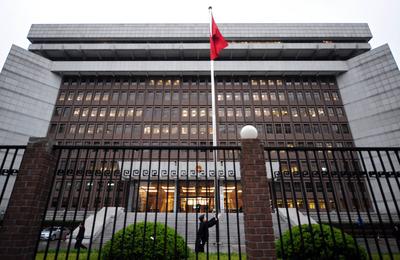In China’s authoritarian system, political participation is prohibited or even criminalised, and dispute resolution through political deliberation is often unavailable. Courts thus provide a way of bringing social issues to public attention.
The long-held hope of many public interest lawyers is to build the rule of law and constitutionalism in China without directly threatening the core of the political system.
Initially, the promotion of rights took place in the margins of political power and fitted with the government’s agenda, which has at times been pluralistic towards certain social and economic issues. Moderate rights claimants could, through courts, achieve some legal and political victories during the early stage of PIL without challenging the Chinese Communist Party (CCP)/state.
Legal activism without politics can only carry public interest lawyers so far, and the law plays an ameliorative role — providing a marginal protection of rights in an otherwise harsh system. However, given the law’s close relationship with politics, it is often impossible to make legal arguments without any political content.
Still, most lawyers can refrain from making an overt political argument. Nonetheless, a few wayward lawyers are determined to test the boundaries, causing the courts to become more politicised.
A lawyer must uphold the supremacy of the Constitution and hold the Party accountable to the law. However, when radical advocates attack Party policies in a public forum, alarm bells are sounded within the CCP.
What then is the role of lawyers in the eyes of the CCP?
The traditional argument is that lawyers focus on the legal particularities of individual cases, thus isolating what could otherwise be explosive social and economic issues. Within this conceptual framework, lawyers and litigation deflect political contention, strengthen legal institutions and help stabilise the existing political order. This is an appealing argument that has been accepted by the government and is the reason why the CCP has tolerated and supported PIL. After all, lawyers are mostly embedded in and supportive of the existing political system.
Over the past decade, however, citizens have begun to demand their rights more aggressively. They organise unofficial associations, take part in informal rallies and demonstrations, and take industrial actions including strikes. These forms of resistance represent emerging civil disobedience. Citizens are demanding that the CCP and government live up to their promises — a path which can eventually lead frustrated citizens to radicalisation.
Alarmed by this social activism, the Party has retreated into its comfortable conservative zone. The rights discourse, popular in the 1990s, has started to diminish and stability discourse, focusing on concepts of harmony, has come to the fore. At the same time, thanks to its economic success, the CCP has become confident in its legitimacy and capacity to rule, and increasingly impatient with a rule of law it associates with inefficiency. In this context, it sees conformity and uniformity as equating with harmony, and repression and brutality equating with effectiveness and efficiency.
Given this, the Party’s concern is that lawyers and activists are drawing otherwise isolated social forces together and channeling them into a confrontation with the CCP. In the cases of Falun Gong and political dissidents, the perception is that lawyers advocate for enemies of the state.
This potential to organise and mobilise the masses has caused the government to become more hostile and repressive — seeing lawyers as organisers of an emerging social force for transformative politics. Furthermore, the fact that PIL is largely foreign-funded allows the government to link PIL in China to hostile forces abroad and extract ulterior motives, such as a colour revolution.
At present, the Party/state has panicked at signs of civil unrest. While the regime may not regard any particular lawyer or group of lawyers as the vanguard of a new revolutionary force subverting the Party/state, public interest lawyers are clearly seen as a part of a larger colour revolution, backed by hostile international forces, with the potential to create formidable political dissent. In an authoritarian regime, this creates a dangerous state of affairs — hence the repressive episode.
Hualing Fu is Professor of Law at the University of Hong Kong.
This article was published in the East Asia Forum Quarterly of January – March 2011.

